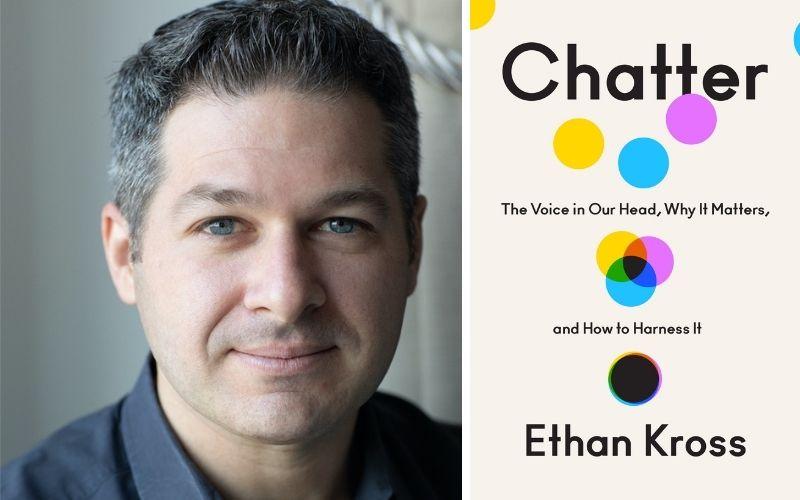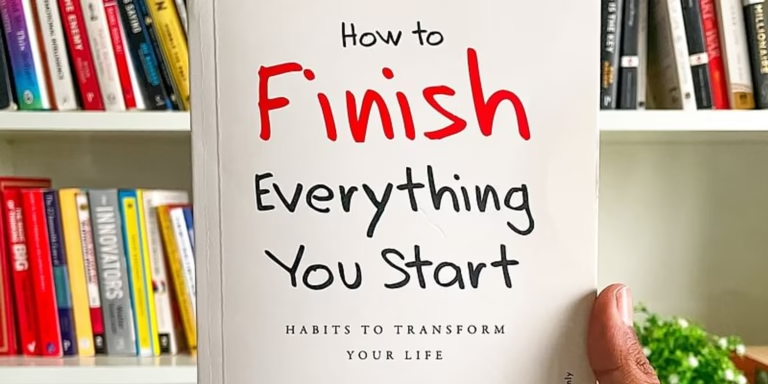The Day My Inner Voice Tried to Ruin My Life

Let me tell you about the worst job interview of my life. Ten minutes in, my inner monologue erupted: “You’re rambling. They hate you. Why did you even apply?” By the end, I was sweating, stumbling over words, and convinced I’d failed. Spoiler: I didn’t get the job. But that moment taught me something life-changing—how we talk to ourselves matters more than we realize.
This isn’t just my story. Baseball pitcher Rick Ankiel’s career collapsed after one bad pitch because his inner voice screamed, “You’ll never recover.” Tennis star Rafael Nadal, though, uses quirky rituals (like obsessively lining up water bottles) to silence doubt. Psychologist Ethan Kross calls this mental noise “chatter” in his book Chatter: The Voice in Our Head, Why It Matters, and How to Harness It. The good news? You don’t have to be a pro athlete to master your mind. Let’s explore how.
Why Your Brain Betrays You (And How to Fight Back)

We’ve evolved to overthink. Our ancestors survived by obsessing over threats (“Is that rustling leaves or a tiger?”). Today, that same wiring makes us agonize over texts, work meetings, or whether we’re “good enough” parents. Kross explains that chatter isn’t inherently bad—it’s our brain’s way of problem-solving. But when it spirals (“I messed up the presentation… I’ll get fired… I’ll end up homeless”), it becomes toxic.
Here’s the kicker: Studies show negative self-talk:
- Shrinks your problem-solving IQ by up to 15 points (University of Michigan)
- Weakens your immune system (hello, stress hormones!)
- Makes you push people away (who wants to be around a “downer”?)
But there’s hope. Let’s dive into 7 tools to reprogram your inner dialogue, borrowed from therapists, CEOs, and yes—even Nadal.
7 Ways to Tame Your Inner Critic (No Meditation Required)

1. Become Your Own Best Friend (Seriously, Try This Now)
Kross’s #1 tip: Use your name. Instead of “Why am I so anxious?”, ask, “Why is [Your Name] anxious?” This “distanced self-talk” tricks your brain into giving objective advice, like you’d offer a friend.
Real-life example: A 2014 study found people who used “you” or their name during a mock job interview performed better and felt calmer.
2. Borrow a Jedi Mind Trick: “Will This Matter in 5 Years?”
When I’m spiraling over a typo in an email, I ask, “Will this matter in 5 weeks, months, or years?” Temporal distancing shrinks problems to their true size.
Pro tip: Write the worry on paper, then literally file it in a “Check Later” folder. Most lose their sting by tomorrow.
3. Steal Rafael Nadal’s Quirky Habit
Nadal’s pre-serve rituals (adjusting socks, touching his nose) aren’t OCD—they’re “attention anchors.” By focusing on mundane actions, he redirects energy from panic to control.
Your turn: Create a “ritual reset.” Mine? Saying “Pivot!” aloud when overwhelmed, then organizing my desk. Silly? Maybe. Effective? Absolutely.
4. Declutter Your Space to Declutter Your Mind
A Princeton study found clutter bombards your brain with stimuli, worsening stress. Your environment is your mental mirror.
Try this: Spend 10 minutes tidying one zone (your purse, a drawer). Notice how order outside quiets chaos inside.
5. The 8-Minute “Brain Dump” Journal
Kross recommends writing freely for 8 minutes to “externalize” chatter. No grammar, no filter—just purge.
Example entry: “I’m terrified my kid’s teacher thinks I’m a bad mom because I forgot snack day… AGAIN.” Seeing it on paper often reveals how fixable it is.
6. Nature’s Instant Perspective Shift
A Stanford study found a 50-minute walk in nature reduces rumination. No forest? No problem. Even watching nature documentaries lowers stress (BBC’s Planet Earth works wonders).
7. Venting: The Double-Edged Sword
Kross warns that ranting to friends can backfire, reinforcing negativity. Instead, ask for solutions. Try: “I’m stuck in a loop about X—help me brainstorm fixes?”
For Parents: Raising Kids Who Aren’t Afraid of Their Own Minds

Kids absorb our self-talk like sponges. I once muttered “Ugh, I look awful” before a Zoom call. Later, I found my daughter refusing school photos because she thought she looked “awful.” Ouch.
3 Ways to Model Healthier Chatter:
- Name the “Worry Bully”: Turn self-criticism into a character. “Sounds like Worry Bully’s lying again. What’s the truth?”
- Brave Talk Bracelets: Make bracelets with phrases like “Mistakes Help Me Grow.” When they’re nervous, touch the beads and repeat it.
- The “Two Stars and a Wish” Bedtime Ritual: Share 2 things you’re proud of today + 1 hope for tomorrow. Teaches balanced reflection.
Your Chatter FAQs (Answered by Science)
- “Is negative self-talk a mental illness?”
No—but chronic chatter can worsen anxiety/depression. If it disrupts daily life, seek therapy (it’s a sign of strength!). - “What if I can’t ‘think positive’?”
Don’t! Forced positivity backfires. Aim for neutral instead. Swap “I’m a failure” with “This feels hard, but I’ve overcome challenges before.” - “How do I stop 3 AM overthinking?”
Keep a “Worry Notepad” by your bed. Write thoughts down, then literally say “I’ll handle you tomorrow.” Your brain will trust you’ve noted it.
Conclusion: Your Inner Voice Is a Superpower (Once You Train It)
Alt Text: “Mastering self-talk unlocks personal power.”

Chatter isn’t your enemy—it’s a misfiring ally. As Ethan Kross writes, “The same voice that drags you down can lift you up… once you learn to guide it.”
Your Homework:
- Name Your Critic: What would you call your negative inner voice? (Mine’s “Karen the Kitchen Sink Dramatist.”)
- Try One Tool Today: Even 5 minutes of distanced self-talk can break a spiral.
Reference: Strategies adapted from Chatter: The Voice in Our Head, Why It Matters, and How to Harness It by Ethan Kross (2021).









